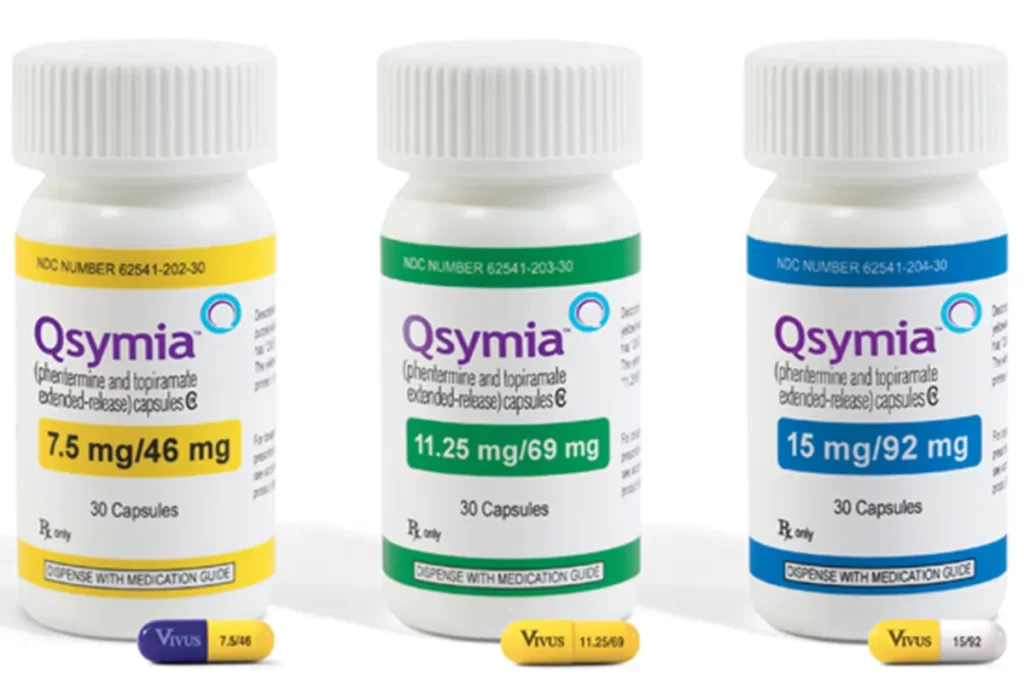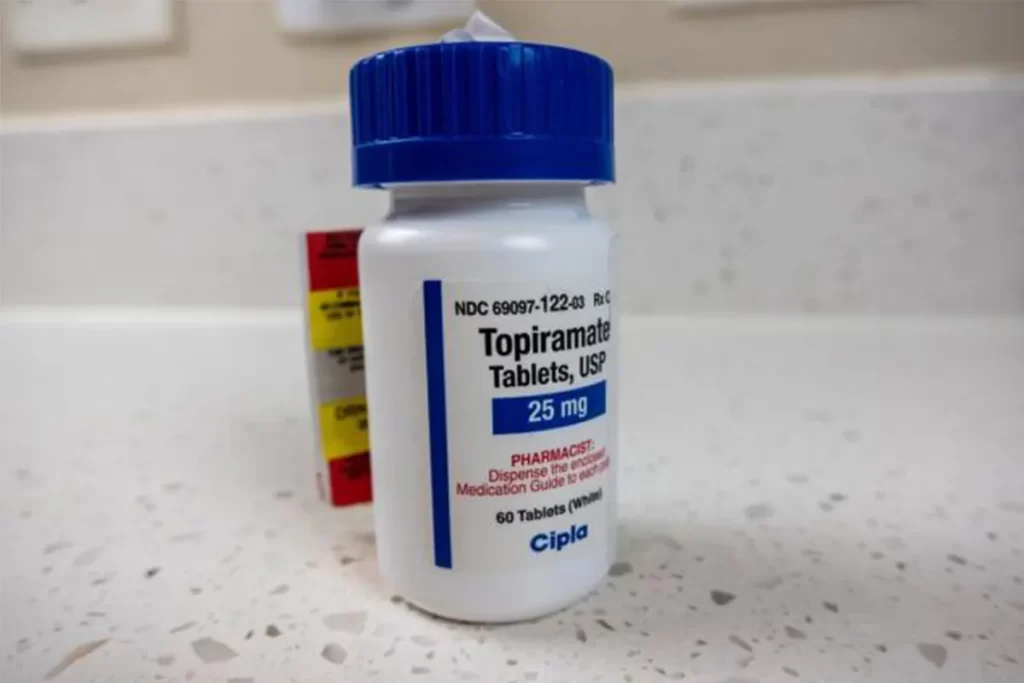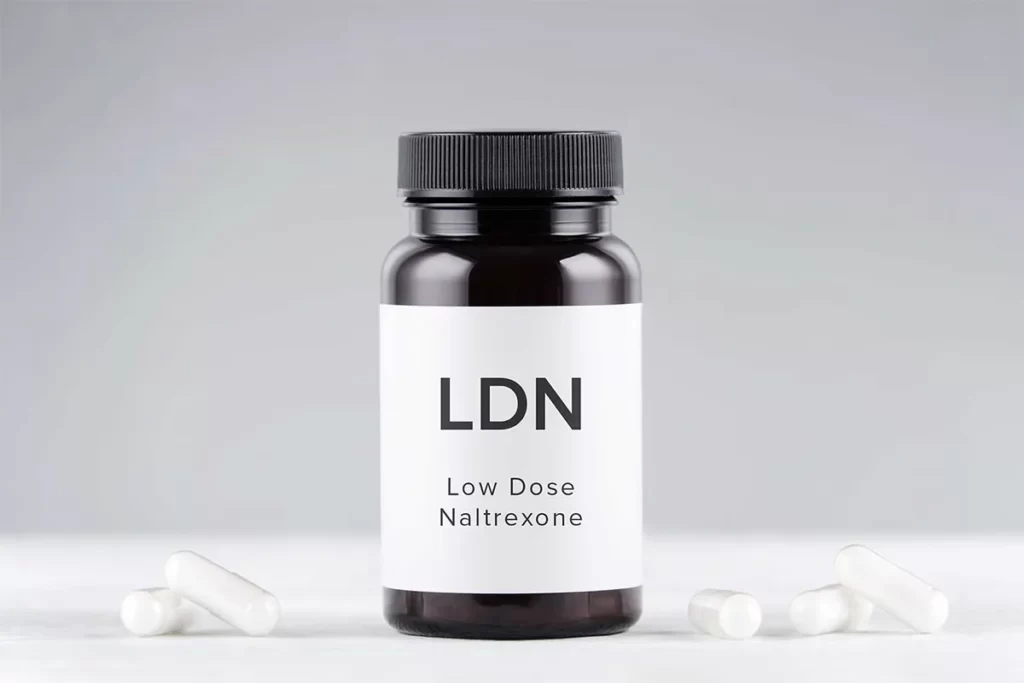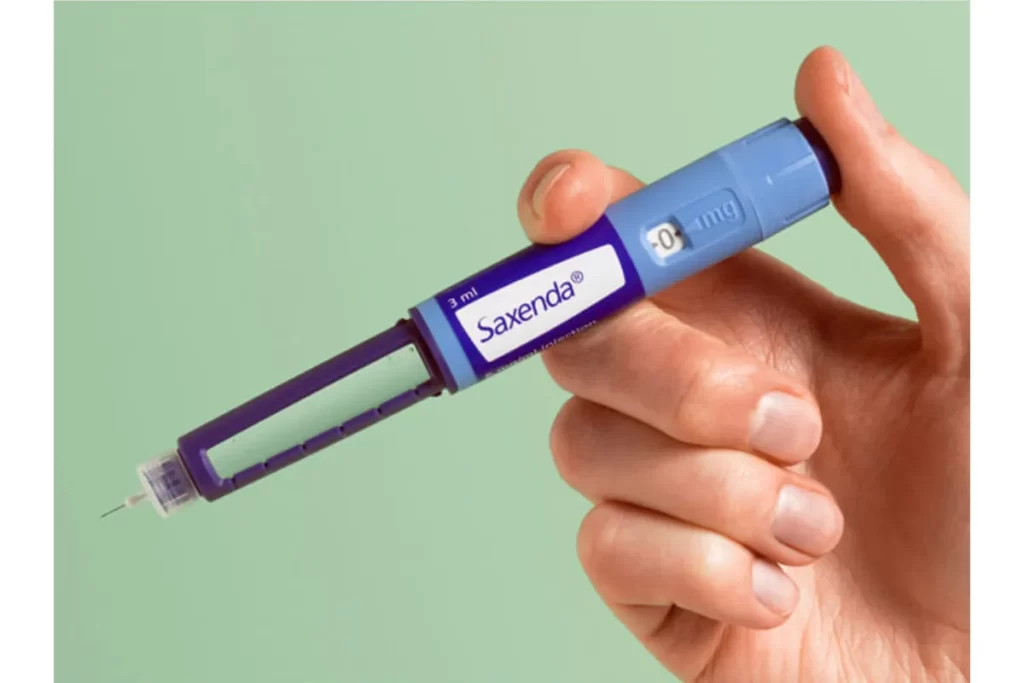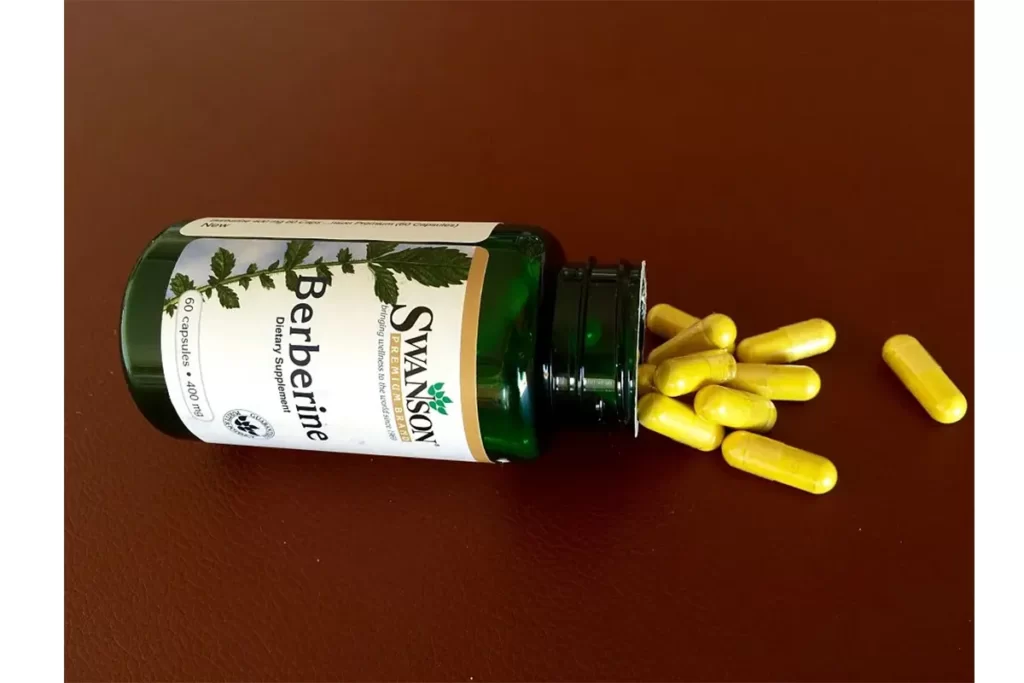The Synergy of Berberine and Exercise
-
 Written by
Michael J. Ormsbee
Written by
Michael J. Ormsbee
- LAST UPDATED October 23, 2023
When it comes to Berberine and exercise, the synergy between the two is hard to ignore. Exercise, a crucial component of a healthy lifestyle, works in tandem with berberine to optimize its health-boosting effects. Together, Berberine and exercise create a powerful duo that not only supports overall wellness but also maximizes the benefits each has to offer individually. By combining regular physical activity with berberine supplementation, individuals can harness the full potential of this dynamic pair to achieve their health and fitness goals.
The Magic of Berberine
Berberine is a bioactive compound extracted from several different plants, including a group known as the Berberis. These plants have a rich history of use in traditional Chinese medicine and Ayurveda for their health-promoting properties. But what exactly is berberine, and why has it captured the attention of the health and wellness community in recent years?
First and foremost, berberine is known for its powerful effects on improving blood sugar levels. This is particularly significant for individuals with diabetes, as maintaining stable blood sugar levels is crucial for managing the condition. Berberine is believed to work by stimulating the uptake of glucose into the cells, thereby helping to reduce high blood sugar levels. Several studies have shown that berberine can be as effective as some diabetes medications in controlling blood sugar.
The benefits of berberine extend beyond diabetes management. For those seeking to lose weight, berberine can be a valuable ally. It has been shown to help regulate metabolism, promoting fat loss and preventing weight gain. This is particularly important in today’s society, where obesity is a growing health concern. By supporting healthy weight loss, berberine can also play a role in preventing related health issues, such as heart disease and diabetes.
For bodybuilders and fitness enthusiasts, the relationship between Berberine and exercise is especially intriguing. Berberine has been shown to increase mitochondrial function and enhance the production of ATP, the primary energy carrier in cells. This means that with the combination of Berberine and exercise, individuals may experience improved workout performance and faster recovery times. The enhanced energy production can also lead to increased muscle mass and strength, making berberine a popular supplement among those in the bodybuilding community.
But the magic of berberine doesn’t stop there. In addition to its benefits for diabetes, weight loss, and bodybuilding, berberine also boasts an array of other health-promoting properties. For example, berberine has been shown to improve heart health by reducing cholesterol levels and blood pressure. This is significant, as heart disease remains the leading cause of death worldwide. By promoting a healthy heart, berberine can contribute to overall longevity and well-being.
Furthermore, berberine possesses anti-inflammatory and antimicrobial properties. This makes it a valuable tool in fighting off infections and reducing inflammation in the body. Chronic inflammation has been linked to a host of health issues, including cancer, Alzheimer’s disease, and autoimmune disorders. Therefore, by reducing inflammation, berberine can help to prevent these serious health conditions.
The synergy between Berberine and exercise is further highlighted by the fact that both can have a positive impact on heart health. Exercise is known to improve cardiovascular function, and when combined with berberine’s cholesterol-lowering and blood pressure-reducing effects, the result is a powerful combination for promoting heart health. Additionally, the anti-inflammatory properties of berberine can help to reduce muscle soreness and inflammation, allowing for more effective workouts and faster recovery times.
The magic of berberine lies in its versatility and range of health benefits. From improving blood sugar levels and supporting weight loss to enhancing workout performance and promoting heart health, berberine is a valuable ally in the quest for optimal health and well-being. Moreover, the synergistic relationship between Berberine and exercise can lead to even greater health benefits, further solidifying Berberine’s status as a must-have supplement for those seeking to improve their health and fitness.

Berberine and Exercise: A Powerful Combo
Analyzing How Berberine Affects Exercise Performance
When considering the dynamic duo of berberine and exercise, it’s crucial to first understand how berberine can influence exercise performance. Berberine, a natural compound found in several plants, has been shown to have a multitude of health benefits. However, its impact on exercise performance is particularly noteworthy.
One of the ways berberine can enhance exercise performance is by improving endurance. This is primarily due to berberine’s ability to enhance the efficiency of mitochondria, the powerhouse of cells. By optimizing mitochondrial function, berberine helps to produce energy more effectively, thereby improving overall endurance and stamina during exercise.
Berberine has been shown to improve glucose uptake in muscles. This means that during exercise, muscles can more efficiently use glucose, the primary energy source during high-intensity workouts. This improved glucose utilization can lead to better exercise performance and quicker recovery times.
Berberine has anti-inflammatory properties that can help to reduce muscle soreness and fatigue. This is particularly beneficial for those engaging in high-intensity workouts, as it can help to speed up recovery time and reduce the risk of injury.
When combined with exercise, berberine becomes an even more powerful tool for enhancing physical performance. The synergistic relationship between berberine and exercise can lead to improved endurance, better glucose utilization, and faster recovery times.
Diving into the Relationship Between Berberine and Muscle Gain
The relationship between berberine and exercise extends beyond just improving exercise performance; berberine can also play a significant role in muscle gain. Muscle growth is an integral part of any fitness journey, and the combination of berberine and exercise can help to maximize muscle gain.
One of the primary ways berberine can support muscle growth is by activating AMP-activated protein kinase (AMPK). AMPK is a key regulator of cellular energy balance and plays a crucial role in promoting muscle growth. By activating AMPK, berberine can help to increase muscle protein synthesis, the process by which the body builds new proteins and, in turn, muscle mass.
Berberine has been shown to increase insulin sensitivity, which can also support muscle growth. Insulin is a hormone that plays a crucial role in transporting glucose and amino acids into muscle cells, both of which are necessary for muscle growth. By improving insulin sensitivity, berberine ensures that muscles have access to the nutrients they need to grow.
The combination of berberine and exercise can also help to reduce body fat, further enhancing muscle definition. The synergistic relationship between berberine and exercise is evident when it comes to muscle gain, as the two work together to promote muscle growth, improve nutrient uptake, and reduce body fat.
Investigating the Impact of Berberine on Testosterone Levels
Testosterone is a vital hormone for both men and women, playing a crucial role in muscle growth, fat loss, and overall well-being. The relationship between berberine and exercise is particularly interesting when examining the impact on testosterone levels.
Research has shown that berberine can have a positive effect on testosterone levels. One of the ways it does this is by reducing levels of insulin resistance, which has been linked to low testosterone levels. By improving insulin sensitivity, berberine can help to optimize testosterone production.
Berberine has been shown to inhibit the enzyme aromatase, which converts testosterone into estrogen. By inhibiting aromatase, berberine helps to maintain higher levels of testosterone in the body, further supporting muscle growth and overall well-being.
The combination of Berberine and exercise has a synergistic effect on testosterone levels. Exercise, particularly resistance training, has been shown to increase testosterone levels. When combined with berberine, the impact on testosterone levels can be even more significant.
Examining the Role of Berberine in Speeding Up Metabolism
The combination of berberine and exercise is particularly powerful when it comes to speeding up metabolism. A fast metabolism is crucial for weight loss, as it helps the body to burn more calories at rest. Berberine has been shown to have a positive effect on metabolism, making it an excellent addition to any weight loss regimen.
One of the ways berberine can speed up metabolism is by activating brown adipose tissue (BAT). BAT is a type of fat that burns calories to produce heat, thereby increasing metabolism and promoting weight loss. By activating BAT, berberine can help the body to burn more calories, even at rest.
Berberine has been shown to improve insulin sensitivity, which can also support weight loss. Insulin plays a crucial role in regulating metabolism, and by improving insulin sensitivity, berberine helps to optimize metabolic function.
When combined with exercise, the impact of berberine on metabolism can be even more significant. Exercise is known to increase metabolism, and when combined with berberine, the two work together to create a powerful metabolic boost. The synergistic relationship between berberine and exercise is evident when it comes to speeding up metabolism, as the two work together to create a powerful tool for weight loss and overall health.
Maximizing the Benefits of Berberine and Exercise
Offering Guidelines on When to Take Berberine: Before or After a Workout?
When it comes to maximizing the benefits of berberine and exercise, one common question is when to ingest berberine – before or after a workout? Understanding the optimal timing can help enhance the synergistic effects between berberine and exercise.
Before a Workout:
Taking berberine before a workout can help boost exercise performance. Berberine’s ability to improve mitochondrial function means that muscles can produce energy more effectively, potentially enhancing endurance and stamina during a session. Additionally, because berberine can increase glucose uptake in muscles, taking it prior to a workout ensures that muscles have adequate fuel during high-intensity activities. Thus, for those looking to boost their exercise performance or engage in longer, more strenuous activities, taking berberine before working out might be beneficial.
After a Workout:
Post-workout is a crucial time for recovery, and berberine can aid in this process. The anti-inflammatory properties of berberine can reduce muscle soreness, promoting faster recovery. Furthermore, the improved insulin sensitivity due to berberine may facilitate the efficient transport of nutrients like glucose and amino acids into muscle cells, aiding in muscle repair and growth. So, for those focused on muscle recovery and growth, ingesting berberine after exercise might be the best choice.
The decision on when to take berberine – before or after exercise – largely depends on individual goals. But irrespective of the timing, the combination of berberine and exercise can amplify the benefits of each, leading to enhanced results.
Suggesting the Optimal Dosage of Berberine for Exercise Enthusiasts
Berberine dosage plays a pivotal role in maximizing the benefits it offers, especially when combined with exercise. While individual needs might vary, there are general guidelines for exercise enthusiasts.
Most research on berberine’s benefits, especially concerning its metabolic effects, recommends a daily dosage of 500mg to 1500mg, typically divided into two to three doses. For exercise enthusiasts, the upper limit might be more appropriate to ensure the synergy between berberine and exercise. However, it’s vital to start with a lower dosage to assess individual tolerance and then gradually increase.
When factoring in exercise, the timing of these dosages might vary. For those taking berberine before a workout, ingesting one dose approximately 30-60 minutes prior is advisable. For post-workout benefits, consuming berberine within 30 minutes after exercising can optimize recovery benefits.
As with any supplement, it’s essential to consult with a healthcare professional before starting berberine, especially when considering higher dosages or when combined with an intense exercise regimen.
Comparing Berberine to Alternative Supplements: L-Carnitine
The world of supplements offers various options, and when discussing berberine and exercise, a comparison with L-carnitine is inevitable. Both are touted for their metabolic and performance-enhancing benefits, but how do they stack up?
Berberine:
As we’ve discussed, berberine excels in enhancing glucose metabolism, mitochondrial function, and insulin sensitivity. Its anti-inflammatory properties further aid muscle recovery post-exercise.
L-Carnitine:
L-carnitine is a naturally occurring amino acid derivative, primarily known for its role in transporting fatty acids into the mitochondria for energy production. This makes it particularly useful for endurance athletes or those looking to burn fat during exercise. Moreover, L-carnitine can reduce exercise-induced oxidative stress, promoting faster recovery.
Comparison:
While both supplements can boost exercise performance and recovery, they do so through different mechanisms. Berberine focuses on glucose metabolism and insulin sensitivity, while L-carnitine emphasizes fat metabolism and reducing oxidative stress. Depending on individual goals – whether it’s enhancing stamina, promoting muscle growth, or burning fat – one might be more appropriate than the other.
The synergy of Berberine and exercise and the benefits of L-carnitine don’t necessarily make one superior – they offer unique advantages.
Addressing the Possibility of Taking Berberine and L-Carnitine Together
Considering the distinct mechanisms through which both berberine and L-carnitine operate, it raises the question: Can they be taken together to maximize the benefits of exercise?
The answer is, in many cases, yes. When taken together, berberine and L-carnitine could offer a comprehensive approach to exercise optimization. Berberine can ensure efficient glucose metabolism, while L-carnitine can enhance fat burning. This combination might be particularly useful for those looking for weight loss while retaining or even building muscle mass.
The post-exercise recovery benefits of both can complement each other. Berberine’s anti-inflammatory properties combined with L-carnitine’s ability to reduce oxidative stress could mean faster muscle recovery and reduced soreness.
As with any supplement regimen, it’s essential to be cautious. Starting with lower dosages of both and monitoring the body’s response is crucial. Potential interactions, although rare, can occur. Consulting a healthcare professional before starting a combined regimen of berberine and exercise, along with L-carnitine, is always the best approach.

FAQs about Berberine and Exercise
Does berberine interfere with exercise?
Berberine does not interfere with exercise; in fact, it can enhance exercise performance. Berberine has been shown to improve mitochondrial efficiency, which is crucial for providing energy during physical activities. Moreover, it can increase glucose uptake in muscles, ensuring that muscles have adequate fuel during high-intensity workouts. Additionally, the anti-inflammatory properties of berberine can help to reduce muscle soreness and fatigue, aiding in quicker recovery post-exercise. However, it's essential to consult with a healthcare professional before incorporating berberine into your fitness regimen, especially if you have any underlying health conditions.
Does berberine affect muscle gain?
Yes, berberine can positively affect muscle gain. Berberine activates AMP-activated protein kinase (AMPK), a key regulator of cellular energy balance, which plays a crucial role in promoting muscle growth. Additionally, by improving insulin sensitivity, berberine ensures that muscles receive the necessary nutrients, like glucose and amino acids, for growth. Furthermore, berberine's anti-inflammatory properties can aid in muscle recovery, thereby supporting muscle growth. However, it's important to note that while berberine can support muscle gain, a proper diet and exercise regimen are also essential for achieving this goal.
What to avoid while taking berberine?
When taking berberine, it's essential to avoid certain medications that can interact with it. These include cyclosporine, medications changed by the liver, and medications that slow blood clotting, among others. Moreover, pregnant and breastfeeding women should avoid berberine due to potential risks. It's also crucial to avoid taking too much berberine, as high doses can cause side effects like diarrhea, constipation, and stomach cramps. Always consult with a healthcare professional before starting berberine, especially if you're taking other medications or supplements.
How long should I cycle on and off of berberine?
The length of time you should cycle on and off berberine depends on your individual health needs and the advice of your healthcare professional. Generally, people cycle berberine for periods ranging from 8 to 12 weeks, followed by a break of similar length. This cycling helps prevent the body from adapting to the supplement, ensuring its efficacy. However, it's essential to consult with a healthcare professional to determine the optimal cycling length for your specific needs.
Why can't you take berberine long term?
Long-term use of berberine is not recommended due to potential safety concerns. While berberine is generally safe when used short-term, the long-term safety has not been well-studied. There are concerns that long-term use of berberine could lead to certain side effects or potentially interact with other medications or supplements you may be taking. Moreover, cycling berberine can help prevent the body from adapting to the supplement, ensuring its efficacy. As always, consult with a healthcare professional before starting any supplement regimen, including berberine.

